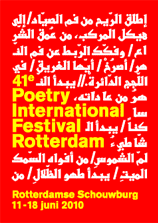Nostalgia for Perpetuation: The bilingual poetry of Fernando Pessoa
‘My nation is the Portuguese language,’ Fernando Pessoa famously wrote in The Book of Disquiet, to stress that his nationalism was not geographical or political but linguistic and literary. Pessoa loved language, and especially his mother tongue. But he also had a second ‘nation’ – the English language, and his ambition as a young man was to become a great poet in the same linguistic tradition as Shakespeare. Whether in the sonnets or in the many other poems he wrote in English, Pessoa was held back by his knowledge of a language that – odd as it may sound – was too poetic. His was a marvellously proficient but bookish, literary English. It was not organic, not alive, like his mother tongue. However hard Pessoa tried, his poetry in English could not connect to the womb. It is full of striking moments, however, and takes up the same themes that fascinate us in his Portuguese verses. This is a case in which translated poetry – when the translator is competent – stands a good chance of improving on and illuminating the original.
Nostalgia for Perpetuation: The bilingual poetry of Fernando Pessoa is a programme about bilingual poets and bilingual poetry, inspired by the bilingualism of the Portuguese writer Fernando Pessoa. Translator Maarten Asscher reads Dutch translations of Pessoa’s English sonnets, Peter Goedhart sings songs inspired by Pessoa’s ‘Song of the Sea’ and Katia Kapovich (USA/Russia) and Nyk de Vries (Friesland/Netherlands) discuss the influence of bilinguality on the form and content of poetry. Presented by Jan Baeke.
Read the full text of 'Fernando Pessoa's other nation' by Richard Zenith on Poetry International Web.
- Tuesday 15 June, 21.30 hrs, Small auditorium
- International poetry readings
- Poetry and Prose
- The Golden Goose: Festival closing ceremony
- Singing Reality: Maria Barnas and Renske Janssen
- Poetry Talks and Poetry in the Afternoon
- Poetry from the USA
- I Am the Wind: Jon Fosse
- GARDENSENSIBILITIES: Live radio play with WORM and Ursula Andkjaer Olsen
- Ewa Lipska and Wislawa Szymborska
- Digital Poetry
- Layla and Madjnun
- Music and live performances
- 'Thirteen ways of looking at a blackbird': Festival opening ceremony
